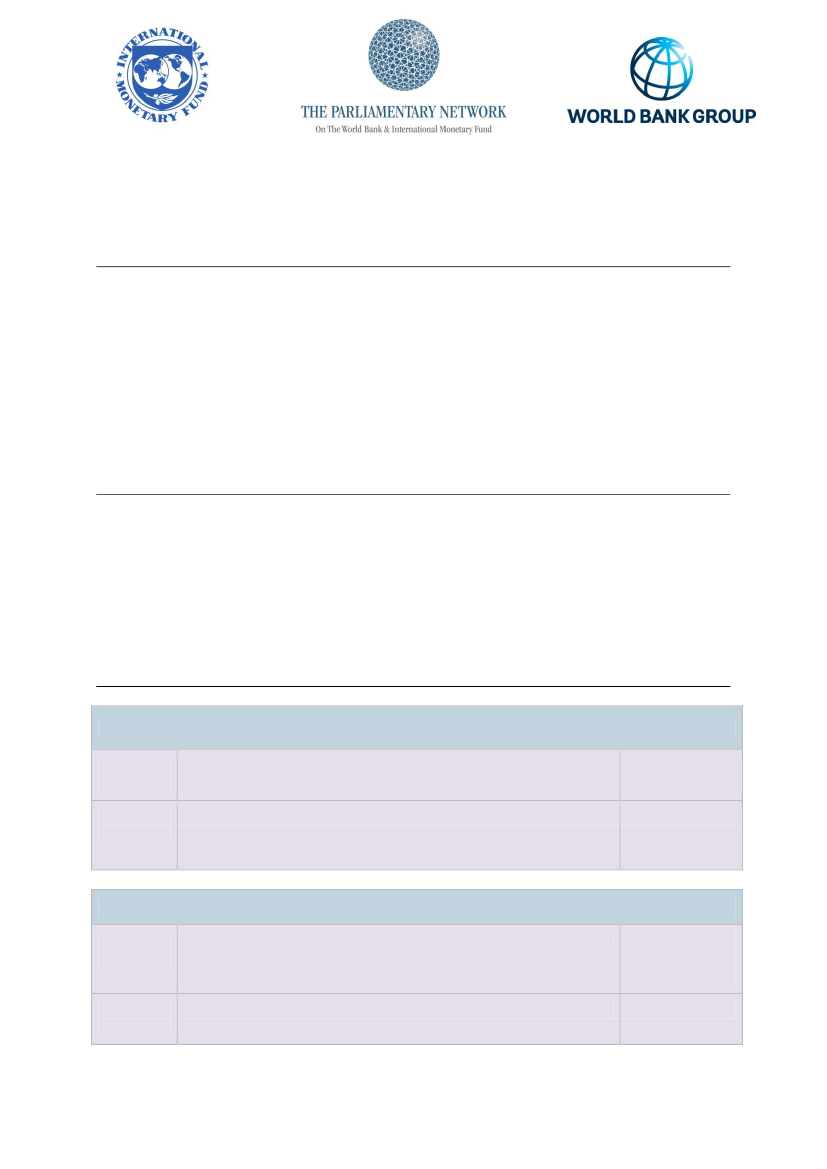
Programme
Field Visit to Indonesia, 1 – 4 February 2016
Venues
Hotel:
Mandarin Oriental Hotel. Jl. MH Thamrin, Jakarta 10310
World Bank Country Office:
Indonesia Stock Exchange Building, or commonly known as “Bursa Efek
Indonesia/BEI”, Jl. Jendral Sudirman Kav. 52-53, Jakarta 12190. The World Bank offices are located on
the 12th (reception area), 13th, & 14th floors of Tower 2, and 9th floor of Tower 1. IFC is located on
the 9th floor of Tower 1.
International Monetary Fund Resident Representative Office:
Bank of Indonesia, 5th Floor, Jl. MH
Thamrin No. 2, Jakarta 10350
Contacts
Gergana Ivanova, Parliamentary Network: +33 6 42 52 92 45
Nayé A. Bathily, World Bank: +33 6 23 30 66 96; +1 202 247 7447
Benedict Bingham, IMF: +62 21 231 1884
Dini Sari Djalal, World Bank: 62 21 5299 3156
Programme
Sunday, 31 January 2016
Upon
arrival
8:00 pm –
9:00 pm
Check-in at the Hotel
Buffet Dinner for participants arriving in the evening
Venue:
Mandarin
Oriental Hotel
Venue:
Mandarin
Oriental Hotel,
Esquire Room
Monday, 1 February 2016
7:45 am –
8:15 am
8:15 am –
9:00 am
Breakfast at Hotel
Venue:
Mandarin
Oriental Hotel
Transport to World Bank Country Office
29.1.2016